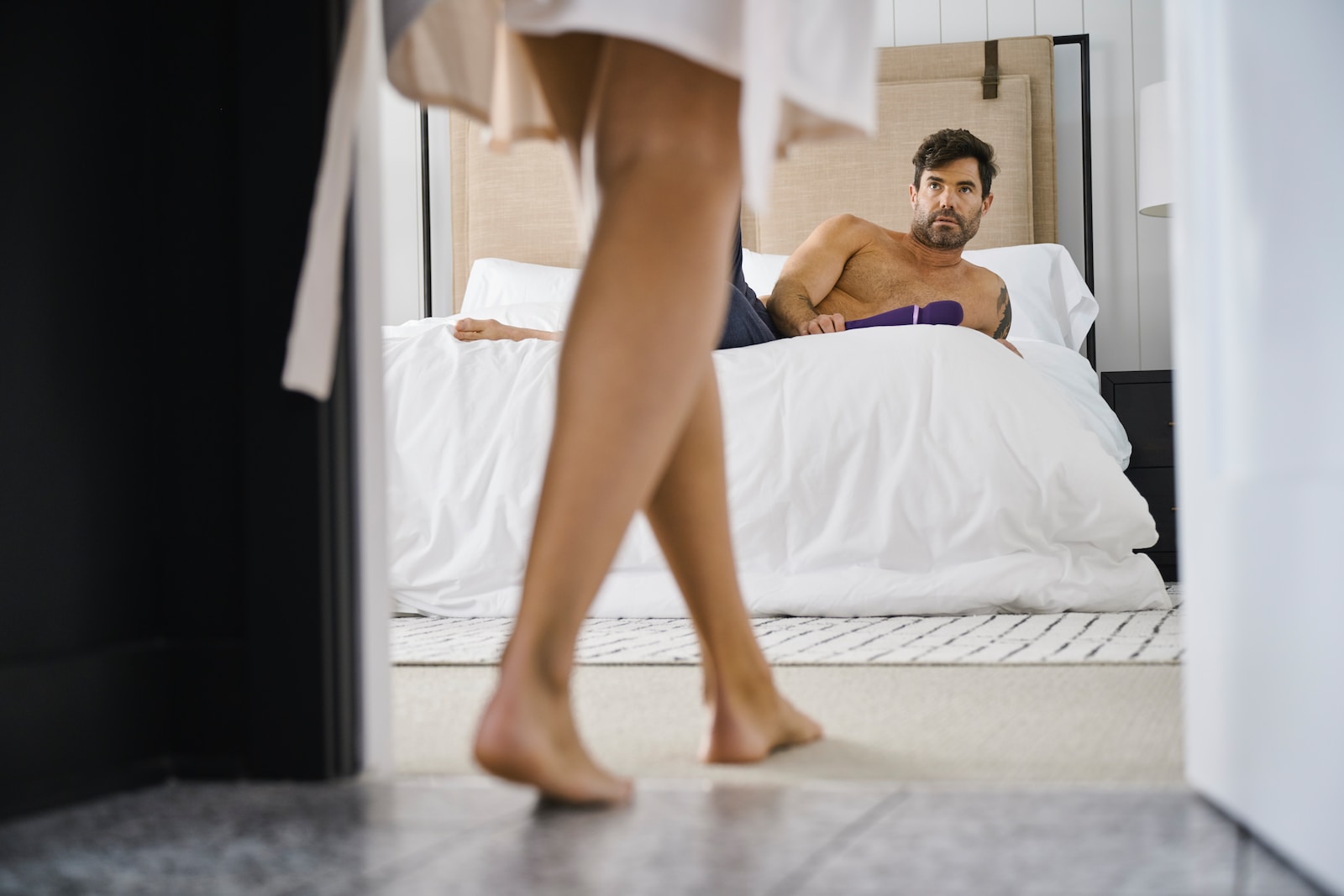
What is the Connection Between Health and Low Male Libido?
The connection between health and low male libido is an important aspect of men’s sexual health and overall well-being. Libido, often referred to as sexual desire, plays a crucial role in a man’s sexual experiences and relationships. Understanding the underlying health conditions and factors that contribute to low male libido is essential for men seeking to address and improve their sexual desire.
What is low male libido?
Low male libido, also known as hypoactive sexual desire disorder (HSDD), is diagnosed when a man experiences a persistent or recurrent lack of sexual desire or interest. It is important to note that a temporary decrease in libido is normal and can occur due to various factors such as stress, fatigue, or relationship issues. However, when the lack of sexual desire becomes persistent and causes distress or affects one’s quality of life, it may indicate a deeper underlying health issue.
Causes of low male libido
Physical health factors can have a significant impact on male libido. Hormonal imbalances, such as low testosterone levels, can contribute to a decrease in sexual desire. Testosterone is the primary male sex hormone responsible for regulating libido, among other functions. When testosterone levels are low, it can lead to a reduced interest in sex. Additionally, certain chronic illnesses like diabetes, cardiovascular disease, obesity, and hormonal disorders can affect sexual desire and contribute to low libido.
Medications can also play a role in reducing male libido. Some medications, such as antidepressants, blood pressure medications, and certain hormone therapies, have been associated with decreased sexual desire as a side effect. It is important to discuss any concerns about medication-related libido changes with a healthcare professional to explore alternative options or adjustments to the treatment plan.
Addressing physical health conditions, seeking appropriate medical advice, and addressing underlying factors are crucial steps in managing low male libido. This may involve hormone replacement therapy, lifestyle modifications, or treatments for underlying health conditions to help restore optimal sexual desire and function.
The connection between health and low male libido underscores the importance of addressing underlying health conditions that can affect sexual desire. By understanding and managing these factors, individuals can take proactive steps toward improving their sexual desire, enhancing their sexual experiences, and promoting overall sexual health and well-being.
Physical Health Factors and Low Male Libido
Physical health factors can significantly impact male libido. Understanding these factors is crucial for individuals seeking to address and improve their sexual desire. Let’s explore some of the key physical health factors that can contribute to low male libido.
Hormonal imbalances
Hormonal imbalances play a significant role in male sexual desire. Testosterone, the primary male sex hormone, is responsible for regulating libido. When testosterone levels are low, it can result in a decreased interest in sex and reduced sexual desire. Various factors can contribute to hormonal imbalances, including aging, certain medical conditions, and lifestyle choices. It is essential to consult with a healthcare professional to assess testosterone levels and explore appropriate treatment options if hormone imbalances are detected.
Chronic illnesses
Chronic illnesses can also impact male libido. Conditions such as diabetes, cardiovascular disease, obesity, and hormonal disorders can affect sexual desire. Diabetes, for example, can cause damage to blood vessels and nerves, leading to reduced blood flow to the genital area and impaired sexual function. Similarly, cardiovascular disease can affect blood flow and reduce sexual desire. Managing these underlying health conditions through lifestyle modifications, medication, or other interventions can help improve sexual desire and overall sexual health.
Certain medications
Certain medications can have an adverse effect on male libido. Antidepressants, blood pressure medications, and certain hormone therapies are examples of medications that may contribute to reduced sexual desire as a side effect. It is important to have open communication with healthcare professionals about any medication-related changes in libido. In some cases, alternative medications or adjustments to the treatment plan may be considered.
Lifestyle choices
Moreover, lifestyle choices can significantly influence male libido. Chronic stress, fatigue, and poor sleep patterns can contribute to low sexual desire. High-stress levels can disrupt hormone balance and lead to a decrease in sexual desire. Adequate rest, stress management techniques, and healthy sleep habits can positively impact libido.
Drugs and alcohol
Substance abuse, including excessive alcohol consumption and drug use, can also diminish male libido. Alcohol, in particular, is known to depress the central nervous system and can interfere with sexual function and desire. Substance abuse treatment and adopting healthier habits can help restore libido.
Physical health factors such as hormonal imbalances, chronic illnesses, medication use, and lifestyle choices can contribute to low male libido. Identifying and addressing these factors through appropriate medical interventions, lifestyle modifications, and open communication with healthcare professionals can help improve sexual desire and enhance overall sexual health.
By understanding the connection between physical health and low male libido, individuals can take proactive steps toward improving their sexual well-being and fostering satisfying intimate relationships.
Psychological and Emotional Factors and Low Male Libido
Psychological and emotional factors can play a significant role in male libido and sexual desire. Understanding these factors is crucial for individuals seeking to address and improve their sexual well-being. Let’s explore some of the key psychological and emotional factors that can contribute to low male libido.
Stress and anxiety
Stress and anxiety can have a profound impact on male sexual desire. High levels of stress can increase cortisol levels and disrupt the delicate balance of hormones in the body, including those involved in sexual function. Anxiety, whether related to performance, relationship issues, or other concerns, can also inhibit sexual desire. Managing stress and anxiety through relaxation techniques, therapy, or stress reduction strategies can help alleviate their negative impact on libido.
Depression
Depression is another psychological factor that can contribute to low male libido. Depression is characterized by persistent feelings of sadness, loss of interest, and reduced energy levels. These symptoms can greatly diminish sexual desire and interfere with overall sexual satisfaction. Seeking appropriate treatment for depression, such as therapy or medication, can help address this underlying cause and improve libido.
Relationship issues
Relationship issues and emotional distress can also impact male libido. Difficulties within a relationship, unresolved conflicts, or emotional disconnection can lead to decreased sexual desire. Emotional distress, such as grief, trauma, or ongoing life stressors, can also affect libido. Open communication with a partner, couples therapy, and addressing relationship issues can help improve sexual desire and enhance the overall quality of intimate relationships.
Self-esteem and self-confidence
Self-esteem and body image concerns can contribute to low male libido as well. Negative self-perception, feelings of inadequacy, or dissatisfaction with body image can create self-consciousness and diminish sexual confidence. Addressing body image concerns through therapy, self-acceptance, and fostering a positive self-image can positively influence libido.
Psychological and emotional factors can significantly impact male libido. Stress, anxiety, depression, relationship issues, emotional distress, self-esteem concerns, and body image issues can all contribute to low sexual desire. It is important to address these factors through therapy, stress management techniques, open communication, and self-care practices.
Seeking professional help, fostering emotional well-being, and cultivating healthy relationships are crucial steps in managing low male libido. By understanding the connection between psychological and emotional factors and low libido, individuals can take proactive steps to improve their sexual desire, enhance their sexual experiences, and promote overall sexual well-being.
Lifestyle Factors and Low Male Libido
Lifestyle factors can have a significant impact on male libido and sexual desire. Making positive changes in these areas can help address and improve low male libido. Let’s explore some of the key lifestyle factors that can contribute to low libido and discuss strategies for enhancing sexual desire.
Obesity and poor nutrition
Obesity and poor nutrition can negatively affect male libido. Excess body weight and obesity can lead to hormonal imbalances, particularly a decrease in testosterone levels, which can result in a reduced interest in sex. Additionally, a diet lacking in essential nutrients can impact overall health, energy levels, and sexual desire. Adopting a balanced diet that includes a variety of fruits, vegetables, whole grains, lean proteins, and healthy fats can positively influence libido and enhance overall sexual well-being.
Physical inactivity and lack of exercise
Physical activity and exercise play a crucial role in maintaining healthy sexual desire. Regular exercise not only promotes cardiovascular health but also increases blood flow to the genital area, which can enhance sexual function and desire. Engaging in aerobic exercises, strength training, and activities that promote flexibility can improve overall fitness and sexual well-being.
Excessive alcohol consumption
Excessive alcohol consumption can have a detrimental effect on male libido. While alcohol may initially lower inhibitions, excessive drinking can impair sexual function, decrease sexual desire, and lead to difficulty achieving or maintaining an erection. Moderating alcohol intake or avoiding excessive drinking can support optimal sexual desire and performance.
Smoking
Smoking tobacco is another lifestyle factor that can negatively impact male libido. Smoking has been linked to reduced sperm count, impaired sperm quality, and decreased sexual desire. Quitting smoking not only benefits overall health but can also improve sexual function and desire.
Stress and adequate sleep
Stress reduction and adequate sleep are essential for maintaining healthy sexual desire. High-stress levels can inhibit libido and interfere with sexual satisfaction. Engaging in stress management techniques such as meditation, deep breathing exercises, or mindfulness can help alleviate stress and promote a healthier sexual desire. Additionally, ensuring adequate restful sleep supports hormonal balance and overall energy levels, positively impacting libido.
Lifestyle factors such as obesity, poor nutrition, lack of exercise, excessive alcohol consumption, smoking, high stress levels, and inadequate sleep can contribute to low male libido.
By adopting a healthy lifestyle that includes balanced nutrition, regular exercise, moderation in alcohol consumption, smoking cessation, stress reduction, and sufficient sleep, individuals can positively impact their sexual desire and overall sexual well-being. Making positive lifestyle changes is an important step toward improving low male libido and enhancing one’s sexual experiences.
Conclusion: Underlying Health Conditions and Their Impact on Low Male Libido
The connection between health and low male libido is multifaceted, involving physical, psychological, and lifestyle factors. Throughout this article, we have explored the impact of these factors on sexual desire and discussed strategies for addressing and improving low male libido. By understanding this connection, individuals can take proactive steps to enhance their sexual well-being and overall quality of life.
- Physical health factors, such as hormonal imbalances, chronic illnesses, medication use, and lifestyle choices, can significantly contribute to low male libido. It is crucial to address and manage these factors through appropriate medical interventions, lifestyle modifications, and open communication with healthcare professionals. Seeking treatment for underlying health conditions, optimizing hormone levels, and adopting healthy lifestyle habits can positively impact sexual desire and improve overall sexual health.
- Psychological and emotional factors, including stress, anxiety, depression, relationship issues, self-esteem concerns, and body image issues, can also influence male libido. Addressing these factors through therapy, stress management techniques, open communication, and self-care practices is essential for managing low male libido effectively. Seeking professional help, fostering emotional well-being, and cultivating healthy relationships can contribute to improved sexual desire and satisfaction.
- Lifestyle factors, such as maintaining a healthy weight, adopting a balanced diet, engaging in regular exercise, moderating alcohol consumption, quitting smoking, managing stress, and ensuring adequate sleep, play a vital role in enhancing male libido. Making positive changes in these areas can positively impact sexual desire and overall sexual well-being.
It is important to remember that each individual’s experience with low male libido is unique, and the underlying causes may vary.
By understanding the connection between health and low male libido, individuals can empower themselves to prioritize their sexual health and take proactive steps toward improving their sexual desire and satisfaction. Open communication with partners, healthcare professionals, or therapists is essential for addressing underlying health issues and promoting sexual well-being.



